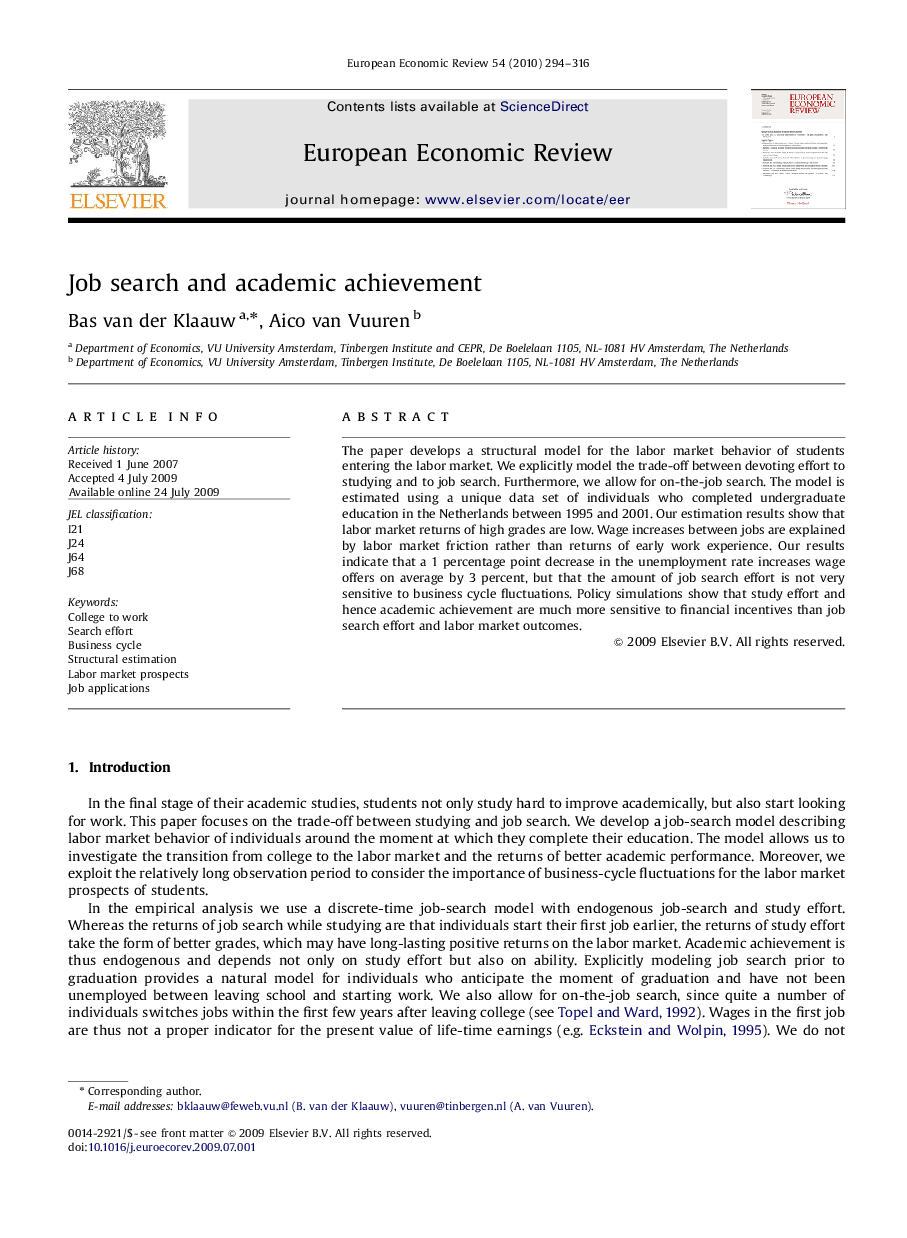| Article ID | Journal | Published Year | Pages | File Type |
|---|---|---|---|---|
| 5067450 | European Economic Review | 2010 | 23 Pages |
The paper develops a structural model for the labor market behavior of students entering the labor market. We explicitly model the trade-off between devoting effort to studying and to job search. Furthermore, we allow for on-the-job search. The model is estimated using a unique data set of individuals who completed undergraduate education in the Netherlands between 1995 and 2001. Our estimation results show that labor market returns of high grades are low. Wage increases between jobs are explained by labor market friction rather than returns of early work experience. Our results indicate that a 1 percentage point decrease in the unemployment rate increases wage offers on average by 3 percent, but that the amount of job search effort is not very sensitive to business cycle fluctuations. Policy simulations show that study effort and hence academic achievement are much more sensitive to financial incentives than job search effort and labor market outcomes.
